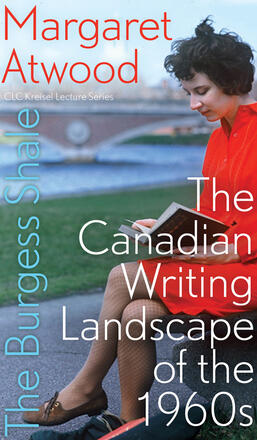
The Burgess Shale
The Canadian Writing Landscape of the 1960s
Description
Margaret Atwood compares the Canadian literary landscape of the 1960s to the Burgess Shale, a geological formation that contains the fossils of many strange prehistoric life forms. The Burgess Shale is not entirely about writing itself, however, Atwood also provides some insight into the meagre writing infrastructure of that time, taking a lighthearted look at the early days of the institutions we take for granted today—from writers’ organizations, prizes, and grant programs to book tours and festivals.
Reviews
#3 on Edmonton Non-Fiction Bestsellers list, April 30, 2017
#1 on Edmonton Non-Fiction Bestsellers list, March 19, 2017
"Covering amazing geographical, literary, and temporal sweeps in single witty comments, this work allows the reader a brief glimpse into the mind of a great writer and her perspective and experience living through what would now seem to many the Stone Age of the Canadian writing scene. .. [A]n invaluable and very readable assignment for students. I equally recommend this short work for a person looking for a light literary frolic through times past in Canada. " Canadian Literature 237 (Summer 2019) [Full review at https://canlit. ca/article/rock-of-ages]
- Shoshannah Ganz
"Through this lecture, Atwood provides an account of the past that is shaped by her signature wit, humour, and insight that readers have to come love and to equate with Canadian Literature. As a Canadian icon herself, Atwood provides a window into her own early writing days which will draw a lot of readers to this work. ... It is a treasure for readers interested in Canadian Literature because this is where it all began. " [Full review at http://www. prairiefire. ca/burgess-shale-canadian-writing-landscape-1960s-margaret-atwood/
- Will J. Fawley
"[Her talk] ranges from ladies’ undergarments to the All-Star Eclectic Typewriter Revue, from schooling in the bible and Shakespeare and comics to starting a publishing company. Atwood’s talk is, as Atwood ever is, dryly amusing.... Atwood’s talk tries to sum up a decade from various angles, finally coming to the question: 'What did we think we were doing, we young writers of that decade?' Experimenting. Describing the landscape in new ways." https://canadianwritersabroad.com/2018/10/31/tell-us-a-story]
- Debra Martens